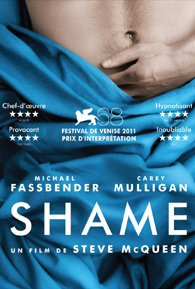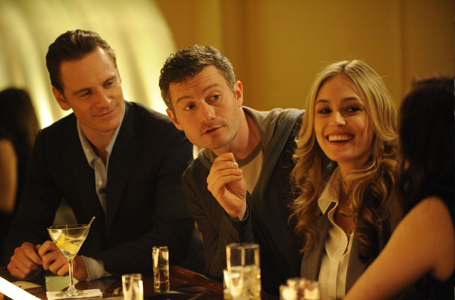
Shame forgoes the usual niceties of character development, plot, and narrative structure and turns its singular, searing spotlight on the effects of sexual addiction and its utter devastation of the human psyche. In this respect, the film succeeds in what it sets out to do. As with their previous collaboration in Hunger, McQueen and Fassbender have delivered another depressing film on such a primal theme fuelled by raw, emotive performances.
Since this is after all a film about the dangers of sex addiction, it would be somewhat unfair to accuse McQueen of making a dull, one-note film which seems to hammer home the message every time Fassbender jerks off in futility on screen or has an unhappy sexual encounter that "sex is bad, mmkay?" It's still easy to make this accusation though especially when in the finale, after a series of wild but unfulfilling sex with random hookers, Brandon ends up with a blow job in a gay bar, face twisted with equal parts ecstasy and shame to denote his complete humiliation at the hands of his own sexual addiction. The film is shrill and sex-negative that way.
Shame's one-note characterisation and storytelling is occasionally punctured by the presence of Carey Mulligan, whose emotionally needy character delivers the piece de resistance of the film — a bluesy rendition of New York, New York. The antithesis of a Busby Berkeley musical interlude, the song is a thing of wonder that brings tears of self-recognition, despair, and helplessness to its listeners. This interlude, however brief, provides a glimpse beyond the interior, private hell of Brandon and confronts us with a visage of the City, where social anonymity and urban anomie conspire to corrupt all that is good and decent in human nature.
In this sense, it is perhaps more fulfilling to watch Shame as a modern successor to early noir films, where directors like Jules Dassin strove to struggle with the City as a character in itself, and told stories where troubled characters weren't really bad people but just good people stuck in a bad place.












 列印版本
列印版本


















讀者回應
請先登入再使用此功能。